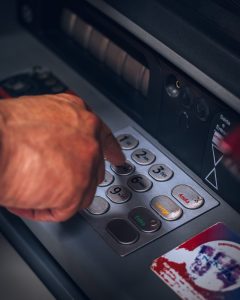Forex systems or foreign exchange trading systems refer to automated software programs designed to help traders make profitable trades in the forex market. These systems utilize advanced algorithms to analyze the market, identify trading opportunities and execute trades on behalf of the trader. Forex systems have revolutionized the way traders approach the forex market, making it possible for even novice traders to make profitable trades.
Forex systems come in different types, each with its unique features and trading strategies. Some of the most popular forex systems include:
1. Trend following systems – These systems are designed to identify and follow market trends. They utilize indicators such as moving averages, trend lines and support and resistance levels to determine the direction of the market and enter trades in the same direction as the trend.
2. Breakout systems – These systems are designed to enter trades when the market breaks through key levels of support or resistance. They seek to capture profits from the momentum generated by the breakout.
3. Scalping systems – These systems are designed to enter and exit trades quickly, usually within a few minutes. They aim to capture small profits from multiple trades throughout the day.
4. Swing trading systems – These systems are designed to capture profits from medium-term price movements. They seek to enter trades in the direction of the prevailing trend and hold them for a few days to a few weeks.
Forex systems can be either fully automated or semi-automated. Fully automated systems execute trades automatically based on pre-set parameters and do not require any human intervention. Semi-automated systems, on the other hand, require some manual intervention from the trader, such as setting stop-loss levels and adjusting trade sizes.
Advantages of Forex Systems
1. Increased Efficiency – Forex systems can analyze the market and execute trades much faster than humans can. This increased speed and efficiency can lead to more profitable trades and better risk management.
2. Elimination of Emotional Bias – Forex systems are not subject to emotions such as fear, greed or panic, which can cloud a trader’s judgment and lead to poor decision-making. Automated systems execute trades based on pre-set parameters, eliminating the possibility of making emotional decisions.
3. Backtesting and Optimization – Forex systems can be backtested and optimized to determine their effectiveness in different market conditions. This allows traders to fine-tune their systems and improve their profitability over time.
4. 24/7 Trading – Forex systems can operate 24/7, allowing traders to take advantage of trading opportunities in different time zones and markets.
Disadvantages of Forex Systems
1. Dependence on Technology – Forex systems depend on technology and can be vulnerable to system failures or technical glitches. Traders should have backup plans in place to ensure that they do not miss out on trading opportunities in the event of a system failure.
2. Lack of Flexibility – Forex systems are designed to operate within pre-set parameters and may not be able to adapt to changing market conditions. Traders should monitor their systems and make adjustments as necessary to ensure that they remain effective.
3. High Cost – Forex systems can be expensive to purchase and maintain. Traders should carefully consider the costs and benefits of using a forex system before investing in one.
Conclusion
Forex systems are powerful tools that can help traders make profitable trades in the forex market. They offer increased efficiency, elimination of emotional bias, and 24/7 trading, among other advantages. However, they are not without their drawbacks, such as dependence on technology and high costs. Traders should carefully evaluate their needs and consider the costs and benefits before investing in a forex system.





